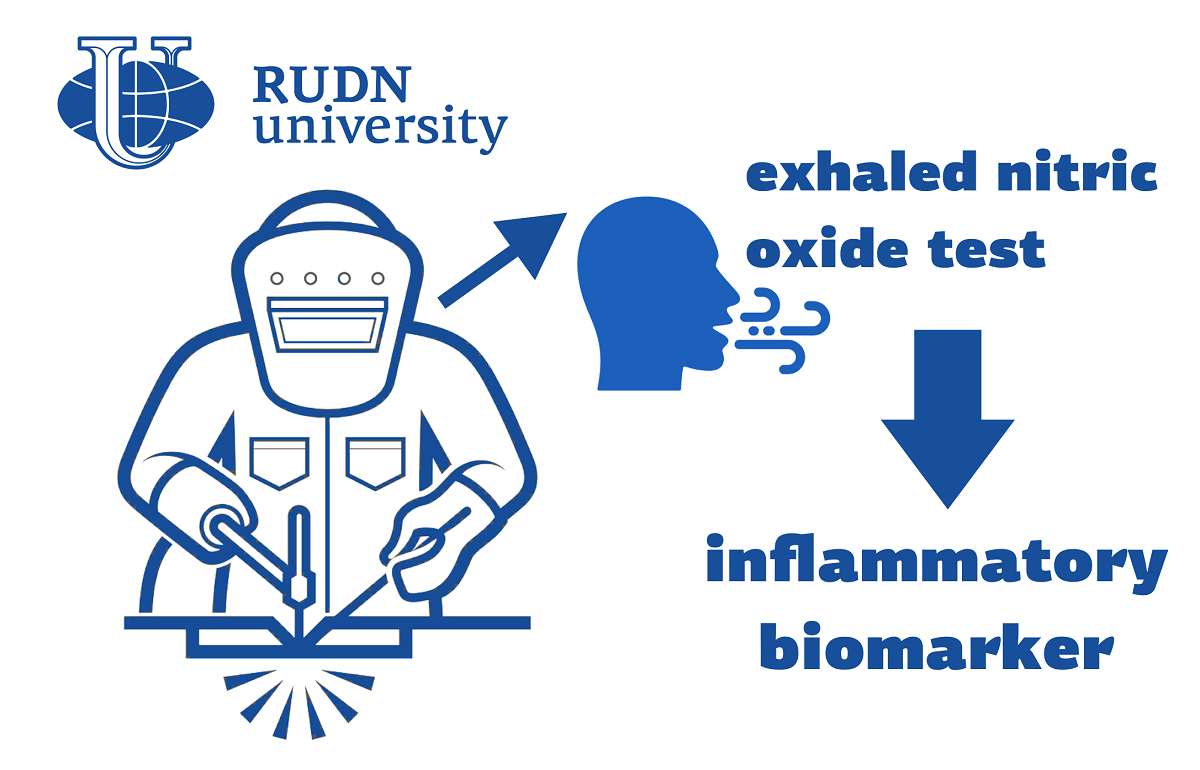The RUDN medical officer named the most susceptible to inflammation of the respiratory tract workers of metalworking plants
For the diagnosis of asthma and other diseases, an assessment of exhaled nitrogen monoxide is used. This compound is normal on exhalation in all people, however, if there is inflammation in the respiratory tract, the amount of exhaled nitrogen monoxide increases. Workers in metalworking enterprises are at risk of respiratory diseases due to the fact that they have to inhale particulate matter. The RUDN Physician, together with colleagues from Kazakhstan and the United States, applied an assessment of exhaled nitrogen monoxide to find out, some of the workers in the metalworking industry have a greater risk of inflammation in the respiratory tract.
“Secondary processing of metals involves exposure to sufficiently high levels of inhaled particulate matter. We investigated the degree to which metalworking is associated with a high content of exhaled nitric oxide, which is considered a biomarkerof inflammation of the respiratory tract, ”- Doctor of Medical Sciences Denis Vinnikov, Professor of the Department of Biochemistry named after Academician T. T. Berezov, RUDN University.
Doctors examined 80 workers of metalworking plants in Kazakhstan. Of these, 41% managed the equipment, 33% were welders and installers, and the rest worked in the administration. Participants completed a questionnaire that indicated comorbidities, possible additional sources of particulate matter other than working conditions, attitudes toward smoking, and other data.
The amount of exhaled nitric oxide was associated with age, position, and smoking. Welders and installers have much more nitrogen oxide in the exhaled air than equipment operators, even though the latter face larger exposure to particulate matter. Welders and installers had a nitric monoxide level in exhaled air on average 44.8 ppb (particles per billion),with a norm of25 ppb.Operators and administration workers had an average of about 24 ppb.Suchresults mayindicatethat weldersandinstallershaveinflammatory processes in the respiratory tract, not directly related to particulate matter.
“From the metalworking industry workers, welders and installers demonstrated significantly higher levels of nitrogen monoxide in the exhaled air. This may reflect inflammation of the respiratory tract associated with airborne effects characteristic of this group of workers, ”- Doctor of Medical Sciences Denis Vinnikov, Professor of the Department of Biochemistry named after Academician T. T. Berezov RUDN University.
The results are published in the journal International Archives of Occupational and Environmental Health.
The RUDN Prize for Scientific Achievements in Chemistry for 2025, with a monetary award of 2 million rubles, was awarded to Alexander Davidovich Dilman, Deputy Director of the N.D. Zelinsky Institute of Organic Chemistry of the Russian Academy of Sciences. The researcher received the award during the celebration marking RUDN’s 66th anniversary.
Sergey Ivanov, a scholar from St. Petersburg, has been named the first winner of RUDN University’s International Prize for Scientific Achievements in Mathematics, worth 5 million rubles.
Products derived from microalgae represent a cutting-edge development in the field of bioeconomy. The potential of this biological resource was discussed at the international research seminar “Foundations for a Green Sustainable Energy”, part of the BRICS Network University’s thematic group on “Energy”. The event was organized by the Institute of Ecology at RUDN University.
